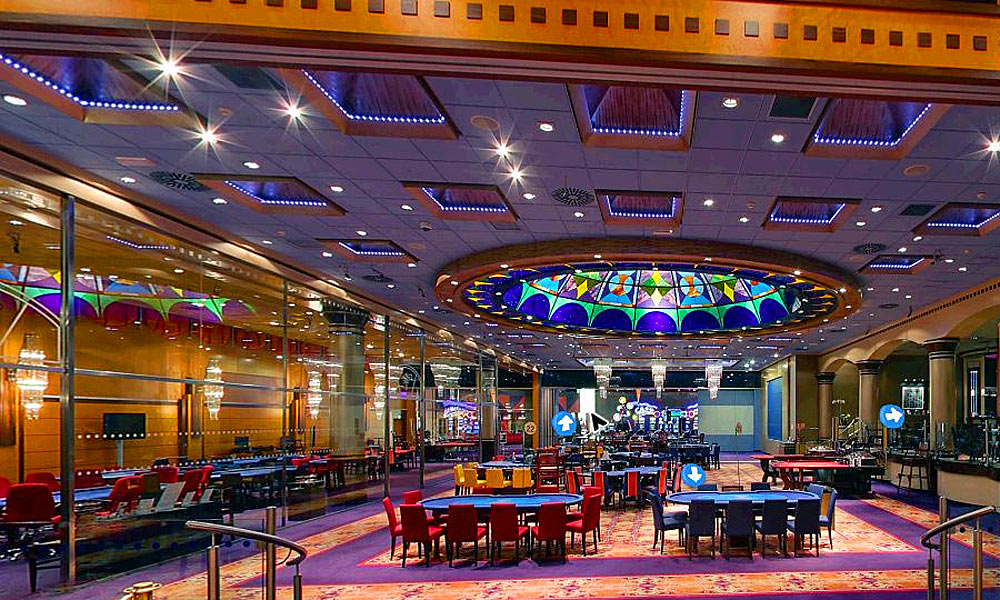
Casino entertainment have long been a staple in human culture, delivering not just entertainment but a intriguing reflection of our hopes, dreams, and fears. From the turning reels of a slot machine to the strategic gameplay of poker, these games encapsulate a spectrum of human emotions and experiences. At their core, casino games are not just a chance to earn cash; they are a reflection of life itself, where risk and reward intertwine and fortunes can change in an moment.
As players gather around tables or sit in front of glowing machines, they participate in a tradition that transcends mere playing. These games reflect our instinctive desires for connection, thrill, and the quest for chance. They also disclose deeper truths about human behavior, such as our relationship with fate and the thrill of the unknown. In exploring casino games, we discover not only the nuances of play but also the rich tapestry of the human journey, showcasing our intertwining narratives of aspiration and reality.
The Psychology of Gambling
Gambling is deeply rooted in human psychology, appealing to various emotions and desires. The thrill of risk-taking is a fundamental aspect that attracts participants, be it it’s thrill of spinning a roulette wheel or the excitement of drawing a winning hand in poker. This adrenaline is frequently likened to other forms of thrill, as the unpredictability of outcomes elicits a distinct psychological response. Gamblers often find themselves entranced by the possibility of winning big, leading to an almost magnetic draw toward gambling games.
Additionally, an essential component of the psychology behind gambling is the concept of hope and aspiration. Participants often indulge in dreams of financial freedom and the opulent lifestyle that can accompany winning. This optimism fuels their ongoing participation in casino games, as it provides a sense of purpose and the conviction that a transformative win could be just one bet away. The narrative of beating the odds and finding success resonates with many, strengthening their dedication to play and involve themselves with these games.
Finally, social dynamics play a significant role in gambling psychology. Gambling venues are designed to foster social interaction, where players gather to share the journey of wins and losses. This communal aspect not only enhances enjoyment but also affects behavior, as individuals often mimic the actions of others around them. The social validation found in shared excitement can enhance the emotional experience, making casino games a reflection of not just personal desires but also collective engagement within the gaming community.
## The Dual Nature of Risk and Reward
Gambling games embody the delicate balance between danger and reward that resonates profoundly with the human experience. The thrill of placing a wager is often accompanied by a surge of excitement, as gamblers are confronted with the chance of a huge payout, yet conscious of the risk to suffer losses. This twofold experience reflects a core aspect of life: the choices we make often come with intrinsic risks, and the quest for benefit can compel us to make risky moves we might not typically consider. In this way, casino games echo real-world decisions, enticing players to gamble not just their capital, but also their hopes.
The allure of big prizes and payouts fuels a sense of optimism, inspiring players to dream of a more promising future that could emerge from a fortunate turn of the wheel or turn of a card. This positive outlook can compel individuals to engage in more daring actions, urging them to take greater risks in search of monetary success. However, just as in life, the consequences of these risks can lead to both triumph and despair. The narratives of both big winners and those who have lost everything at the tables demonstrate the chaotic nature of chance and its consequential repercussions on our lives.
Ultimately, the experience of engaging with casino games serves as a strong reminder of the nature of humanity. Every game played is loaded with the tension of ambiguity, as players weigh the gains against the risks. This interaction not only highlights the thrill that comes with betting but also reveals the weaknesses that come with the longing for more. BET88 As we navigate the challenges of decision-making and consequence in both the gambling world and in life, we find that the quest for gain shapes our character and journeys in significant manners.
Culture and Loneliness in Casino Culture
Casino culture is a unique blend of social interaction and individual pursuit, reflecting the contrasts of human experience. Players often gather around tables, experiencing in the thrill of the action, rejoicing in wins, and commiserating over losses. This communal aspect is crucial, as it establishes a sense of belonging and camaraderie among varied groups of people. Regular attendees to gaming establishments may build friendships and develop routines, turning the gambling venue into a second home where they experience linked to a larger community of players.
However, the allure of gambling games can also lead to isolation. As individuals become engrossed in the excitement of gambling, they may isolate from personal connections or fail to interact with the world outside the casino. For some, the search of a jackpot can overshadow real relationships, leading to isolation. The situation of being surrounded people yet experiencing solitary is not uncommon, as the attention shifts from shared enjoyment to the private concerns of each player’s path.
This interaction of community and solitude creates a vivid mosaic that defines gaming atmosphere. It highlights the complexity of human interactions, where joy and sorrow exist together. Gambling venues serve as both a sanctuary for social interaction and a stage for individual challenges, illustrating how intimately entwined our yearning for companionship and the individual quest for fortune can be. In navigating this environment, players confront their own narratives—seeking both the rush of the wager and the fellowship of other players, eventually mirroring the wider spectrum of individual experience.